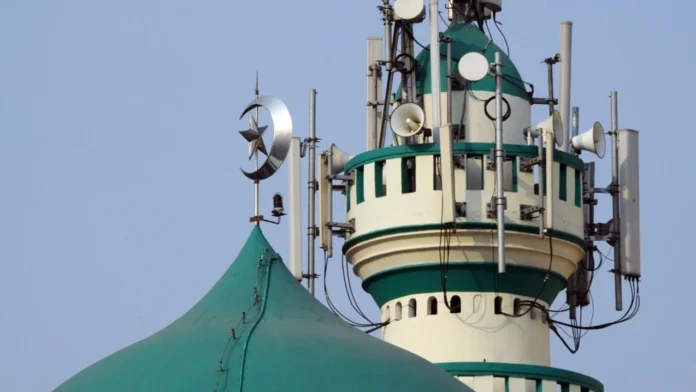This landmark judgment addressing Mumbai’s escalating noise pollution crisis has maintained that restricting loudspeaker use at religious institutions does not infringe upon constitutional rights. The decision, delivered by a Division Bench of Justices AS Gadkari and Shyam C Chandak in Jaago Nehru Nagar Residents Welfare Association vs Commissioner of Police (2025), establishes a robust framework to balance religious practices with public health concerns in densely populated urban areas.
The Case & Court’s Rationale
The case stemmed from petitions filed by residents of Kurla and Chunabhatti, who accused local mosques and madrasas of routinely flouting noise regulations during Azaan and religious instruction. Despite multiple complaints, law enforcement failed to take action, prompting the residents to seek judicial intervention.
While the petitioners demanded strict enforcement of noise norms and criminal proceedings against violators, the Court refrained from ordering an FIR. Instead, it directed the Maharashtra government to implement a technology-driven, systematic noise control mechanism to curb violations effectively.
The Bench clarified that “noise is a major health hazard” and ruled that “denying loudspeaker permissions does not violate Articles 19 or 25” of the Constitution, as such restrictions serve a compelling public interest.
Key Directives & Guidelines
To ensure effective enforcement, the Court laid out a structured, technology-assisted noise control framework:
1. Tech-Driven Decibel Control
• All religious institutions must install inbuilt mechanisms to cap loudspeaker and amplifier decibel levels.
• Law enforcement agencies will deploy sound-measuring applications for real-time noise monitoring.
2. Three-Strike Enforcement Protocol
• First Complaint: A verbal warning to the institution’s management.
• Repeat Offense: A monetary fine imposed on trustees/managers under Section 136 of the Maharashtra Police Act.
• Persistent Violations: Confiscation of equipment and revocation of loudspeaker licenses under Section 70.
3. Complainant Confidentiality
• The police must protect the identities of complainants to prevent potential retaliation.
Legal Precedents & Broader Implications
The ruling aligns with earlier judicial pronouncements on noise pollution. In Church of God vs KKR Majestic Colony Welfare Association, the Supreme Court had unequivocally stated that “no religion prescribes prayers that disturb others’ peace.” Similarly, in Mahesh Bedekar vs State of Maharashtra, the Bombay High Court had condemned lax enforcement of noise pollution laws, particularly during religious festivals.
This latest judgment underscores the State’s duty to prioritize public health over unchecked religious practices. By mandating calibrated decibel limits and systematic enforcement, the Court has provided a scalable model for urban centres across India grappling with similar challenges.
Justice Gadkari encapsulated the Court’s stance, emphasizing that “the exercise of one’s rights must not infringe upon others’ rights”—a principle now enshrined in Mumbai’s urban governance framework.
—By Abhilash Kumar Singh and India Legal Bureau


